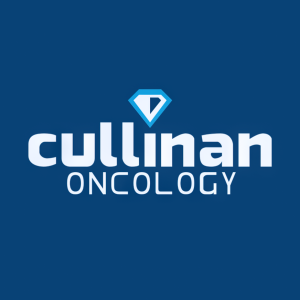Cullinan Therapeutics, Taiho Pharmaceutical, and Taiho Oncology to Present Positive Results from Pivotal Phase 2b REZILIENT1 Trial of Zipalertinib at ASCO 2025
Rhea-AI Summary
Positive
- Strong efficacy with 35% overall response rate in the total efficacy population
- Higher 40% response rate in patients with prior platinum-based chemotherapy
- Meaningful 8.8-month median duration of response
- Effective in patients with brain metastases (31% ORR)
- Manageable safety profile with mostly grade 1-2 adverse events
Negative
- Lower response rate (24%) in heavily pre-treated patients with prior chemo and amivantamab
- Notable adverse events including paronychia (38.5%) and rash (30.3%)
- Some serious grade ≥3 adverse events reported, including anemia (7%)
News Market Reaction – CGEM
On the day this news was published, CGEM declined 1.01%, reflecting a mild negative market reaction.
Data tracked by StockTitan Argus on the day of publication.
CAMBRIDGE, Mass. and TOKYO, Japan and PRINCETON, N.J., May 22, 2025 (GLOBE NEWSWIRE) -- Cullinan Therapeutics, Inc. (Nasdaq: CGEM), Taiho Pharmaceutical Co., Ltd., and Taiho Oncology, Inc. today announced new positive results from the pivotal Phase 2b cohorts of the REZILIENT1 trial, a Phase 1/2 clinical trial of zipalertinib monotherapy in patients with advanced or metastatic non-small cell lung cancer (NSCLC) with epidermal growth factor receptor (EGFR) exon 20 insertion mutations (ex20ins) who have received prior therapy. These data will be presented on Sunday, June 1 at the 2025 American Society of Clinical Oncology (ASCO) Annual Meeting as an oral presentation during the “Lung Cancer – Non-Small Cell Metastatic” session from 9:00 AM-9:12 AM CDT (Abstract #8503).
“People living with EGFR ex20ins NSCLC urgently need well-tolerated targeted therapies with durable clinical benefit,” said Helena A. Yu, MD, Thoracic Medical Oncologist & Early Drug Development Specialist, Memorial Sloan Kettering Cancer Center. “It is encouraging to see a program that can potentially offer a meaningful option for some of the sickest patients with lung cancer. The findings from the REZILIENT1 trial may support zipalertinib as a potential new oral treatment option for patients whose disease progressed after prior therapies.”
Summary of Efficacy Results
As of the December 2024 data cutoff, 244 patients were enrolled in REZILIENT1 and received at least one dose of 100 mg zipalertinib. The overall efficacy population (n=176) consisted of all patients who received at least one dose of 100 mg zipalertinib and had approximately 8 months of minimum follow-up at data cutoff. Patients had received a median of 2 prior therapies, and
With median follow-up of 9.3 months, zipalertinib demonstrated:
- In the overall efficacy population (n=176), confirmed overall objective response rate (ORR) was
35% with median duration of response (mDOR) of 8.8 months - In patients with prior platinum-based chemotherapy only (n=125), ORR was
40% with mDOR of 8.8 months, consistent with REZILIENT1 Phase 1/2a results1 - In patients with prior chemo and amivantamab (without the addition of other prior ex20ins-targeted therapy) (n=30), ORR was
30% with mDOR of 14.7 months- In patients with prior chemo and amivantamab (with or without other ex20ins-targeted therapy) (n=51), ORR was
24% with mDOR of 8.5 months
- In patients with prior chemo and amivantamab (with or without other ex20ins-targeted therapy) (n=51), ORR was
- In patients with brain metastases (n=68), the ORR was
31% with mDOR of 8.3 months
Summary of Safety and Tolerability Results
The safety analysis population included all REZILIENT1 patients who received at least one dose of 100 mg zipalertinib (n=244). The results showed that zipalertinib demonstrated a manageable safety profile in this heavily pre-treated patient population, consistent with previously reported data. The most common treatment-related adverse events (TRAEs, all-grade) were paronychia (
The most common grade ≥3 TRAEs were anemia (
About REZILIENT1
REZILIENT1 (Researching Zipalertinib In EGFR Non-Small Cell Lung Cancer Tumors) is a Phase 1/2 clinical trial (NCT04036682) to evaluate efficacy and safety of zipalertinib in adult patients with advanced or metastatic NSCLC harboring EGFR exon 20 insertion mutations who have received prior therapy. Patients were treated with oral zipalertinib 100 mg twice daily. The primary endpoints were ORR and DOR as assessed by blinded independent central review (ICR) per RECIST v1.1. Adverse events were characterized and graded according to Common Terminology Criteria for Adverse Events (CTCAE v5.0).
About Zipalertinib
Zipalertinib (development code: CLN-081/TAS6417) is an orally available small molecule designed to target activating mutations in EGFR. The molecule was selected because of its ability to inhibit EGFR variants with exon 20 insertion mutations, while sparing wild-type EGFR. Zipalertinib is designed as a next generation, irreversible EGFR inhibitor for the treatment of a genetically defined subset of patients with non-small cell lung cancer. Zipalertinib has received Breakthrough Therapy Designation from the FDA. Zipalertinib is investigational and has not been approved by any health authority.
Zipalertinib is being developed by Taiho Oncology, Inc., its parent company, Taiho Pharmaceutical Co., Ltd., and in collaboration with Cullinan Therapeutics, Inc. in the U.S.
About the EGFR Exon 20 Insertion Mutations
NSCLC is a common form of lung cancer and up to
About Cullinan Therapeutics
Cullinan Therapeutics, Inc. (Nasdaq: CGEM) is a biopharmaceutical company dedicated to creating new standards of care for patients. Cullinan has strategically built a diversified portfolio of clinical-stage assets that inhibit key drivers of disease or harness the immune system to eliminate diseased cells in both autoimmune diseases and cancer. Cullinan’s portfolio encompasses a wide range of modalities, each with the potential to be best and/or first in class. Anchored in a deep understanding of oncology, immunology, and translational medicine, we create differentiated ideas, identify the most appropriate targets, and select the optimal modality to develop transformative therapeutics across a wide variety of autoimmune and cancer indications. We push conventional boundaries from candidate selection to differentiated therapeutic, applying rigorous go/no go criteria at each stage of development to fast-track only the most promising molecules to the clinic and, ultimately, commercialization. With deep scientific expertise, our teams exercise creativity and urgency to deliver on our promise to bring new therapeutic solutions to patients. Learn more about Cullinan at https://cullinantherapeutics.com/, and follow us on LinkedIn and X.
About Taiho Pharmaceutical Co., Ltd. (Japan)
Taiho Pharmaceutical, a subsidiary of Otsuka Holdings Co., Ltd. (https://www.otsuka.com/en/), is an R&D-driven specialty pharma focusing on the fields of oncology and immune-related diseases. Its corporate philosophy takes the form of a pledge: “We strive to improve human health and contribute to a society enriched by smiles.” In the field of oncology, in particular, Taiho Pharmaceutical is known as a leading company in Japan for developing innovative medicines for the treatment of cancer, a reputation that is rapidly expanding through their extensive global R&D efforts. In areas other than oncology, as well, the company creates and markets quality products that effectively treat medical conditions and can help improve people’s quality of life. Always putting customers first, Taiho Pharmaceutical also aims to offer consumer healthcare products that support people’s efforts to lead fulfilling and rewarding lives. For more information about Taiho Pharmaceutical, please visit https://www.taiho.co.jp/en.
About Taiho Oncology, Inc.
The mission of Taiho Oncology, Inc. is to improve the lives of patients with cancer, their families and their caregivers. The company specializes in the development and commercialization of orally administered anti-cancer agents for various tumor types. Taiho Oncology has a robust pipeline of small-molecule clinical candidates targeting solid-tumor and hematological malignancies, with additional candidates in pre-clinical development. Taiho Oncology is a subsidiary of Taiho Pharmaceutical Co., Ltd. which is part of Otsuka Holdings Co., Ltd. Taiho Oncology is headquartered in Princeton, New Jersey and oversees its parent company’s European and Canadian operations, which are located in Baar, Switzerland and Oakville, Ontario, Canada. For more information, visit https://www.taihooncology.com/, and follow us on LinkedIn and X. Taiho Oncology and the Taiho Oncology logo are registered trademarks of Otsuka Holdings Co., Ltd. or its subsidiaries.
Forward-Looking Statements
This press release contains forward-looking statements within the meaning of The Private Securities Litigation Reform Act of 1995. These forward-looking statements include, but are not limited to, express or implied statements regarding the company’s beliefs and expectations regarding our plans regarding future data presentations, the clinical development and regulatory filing plan and timeline of zipalertinib, the safety and efficacy profile of zipalertinib and its potential to address this unmet need, and other statements that are not historical facts. The words “believe,” “continue,” “could,” “estimate,” “expect,” “intends,” “may,” “plan,” “potential,” “project,” “pursue,” “will,” and similar expressions are intended to identify forward-looking statements, although not all forward-looking statements contain these identifying words.
Any forward-looking statements in this press release are based on management's current expectations and beliefs of future events and are subject to known and unknown risks and uncertainties that may cause our actual results, performance or achievements to be materially different from any future results, performance or achievements expressed or implied by the forward-looking statements. These risks include, but are not limited to, the following: uncertainty regarding the timing and results of regulatory submissions; the risk that any INDs, NDAs or other global regulatory submissions we may file with the United States Food and Drug Administration or other global regulatory agencies are not cleared on our expected timelines, or at all; the success of our clinical trials and preclinical studies; the risks related to our ability to protect and maintain our intellectual property position; the risks related to manufacturing, supply, and distribution of our product candidates; the risk that any one or more of our product candidates, including those that are co-developed, will not be successfully developed and commercialized; the risk that the results of preclinical studies or clinical studies will not be predictive of future results in connection with future studies; and the success of any collaboration, partnership, license or similar agreements. These and other important risks and uncertainties discussed in our filings with the Securities and Exchange Commission, including under the caption “Risk Factors” in our most recent Annual Report on Form 10-K and subsequent filings with the SEC, could cause actual results to differ materially from those indicated by the forward-looking statements made in this press release. While we may elect to update such forward-looking statements at some point in the future, we disclaim any obligation to do so, even if subsequent events cause our views to change, except to the extent required by law. These forward-looking statements should not be relied upon as representing our views as of any date subsequent to the date of this press release. Moreover, except as required by law, neither the company nor any other person assumes responsibility for the accuracy and completeness of the forward-looking statements included in this press release. Any forward-looking statement included in this press release speaks only as of the date on which it was made.
Contacts:
Cullinan Therapeutics
Investors
Nick Smith
+1 401.241.3516
nsmith@cullinantx.com
Media
Rose Weldon
+1 215.801.7644
rweldon@cullinantx.com
Taiho Pharmaceutical Co., Ltd.
Junko Onishi
+81-80-1009-7683
junn-onishi@taiho.co.jp
Taiho Oncology
Leigh Labrie
+1 609.664.9878
llabrie@taihooncology.com
-----
- Piotrowska Z, Tan DS, Smit EF, et al. Safety, tolerability, and antitumor activity of zipalertinib among patients with non-small-cell lung cancer harboring epidermal growth factor receptor exon 20 insertions. Journal of Clinical Oncology. Available at: https://ascopubs.org/doi/full/10.1200/JCO.23.00152. Last accessed: January 2025.
- Burnett H, Emich H, Carroll C, et al. Epidemiological and clinical burden of EGFR exon 20 insertion in advanced non-small cell lung cancer: a systematic literature review. PLOS ONE. 2021;16(3):e0247620. Available at: https://journals.plos.org/plosone/article?id=10.1371/journal.pone.0247620. Last accessed: January 2025.
- Riess JW, Gandara DR, Frampton GM, et al. Diverse EGFR Exon 20 Insertions and Co-Occurring Molecular Alterations Identified by Comprehensive Genomic Profiling of NSCLC. Journal of Thoracic Oncology. 2018 Jul 5;13(10):1560–1568. Available at: https://www.jto.org/article/S1556-0864(18)30770-6/pdf. Last accessed: May 2025.








